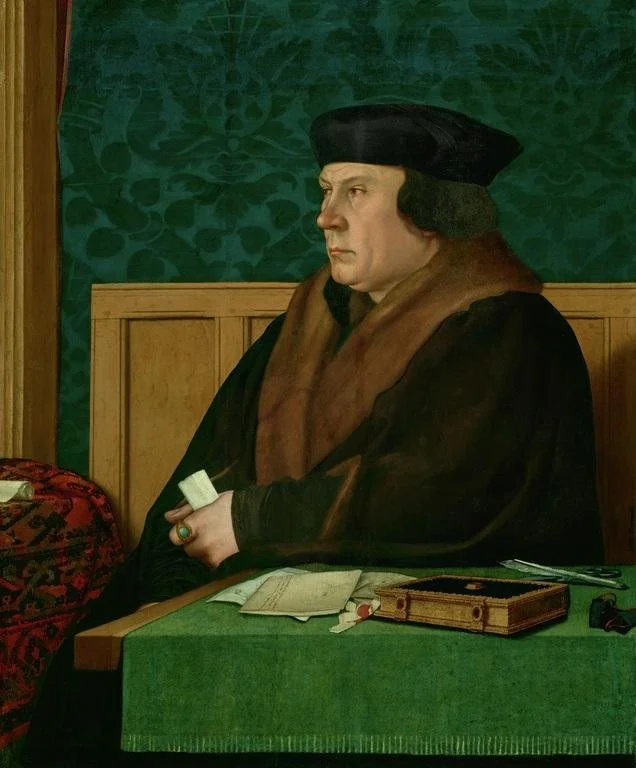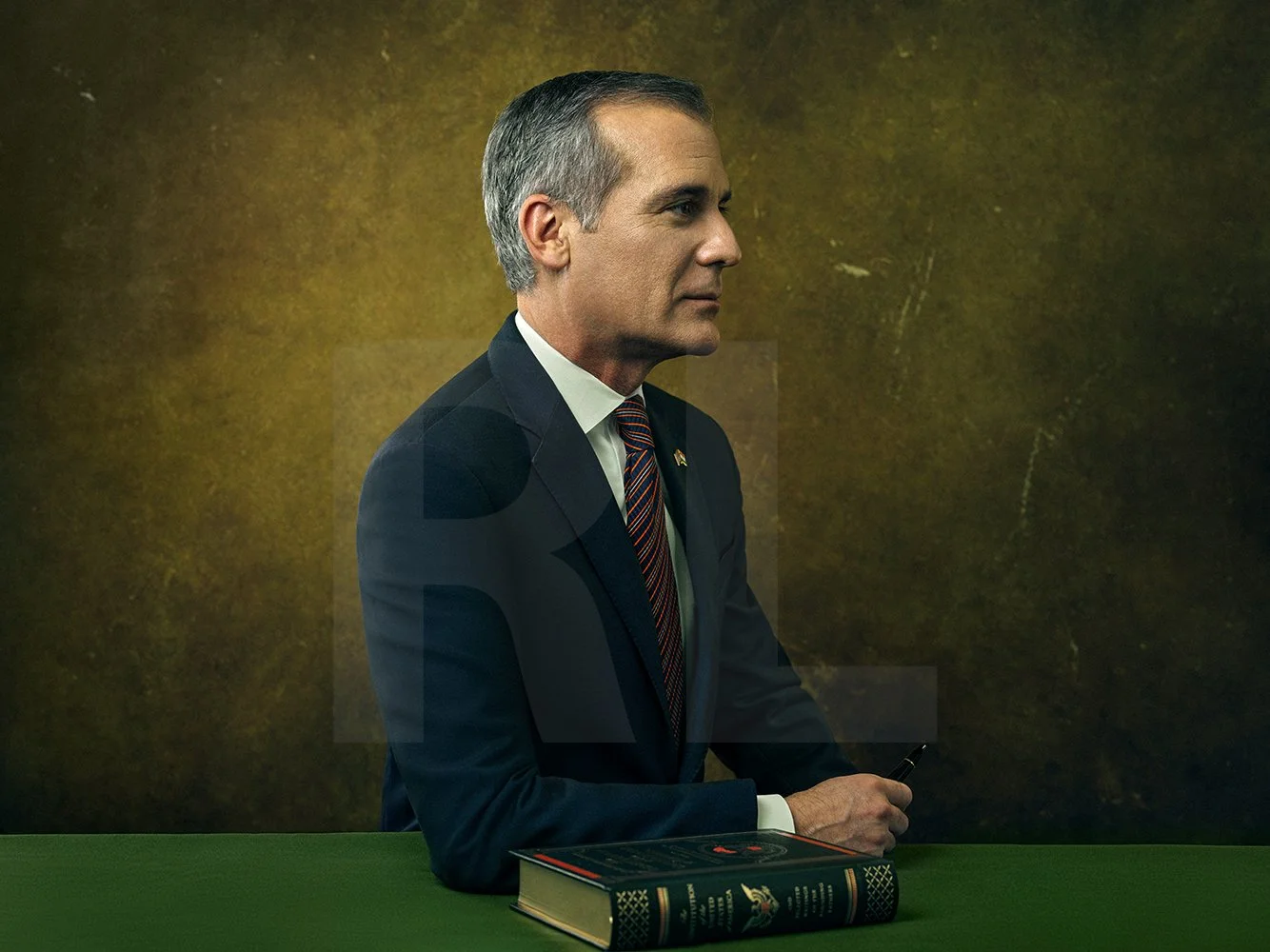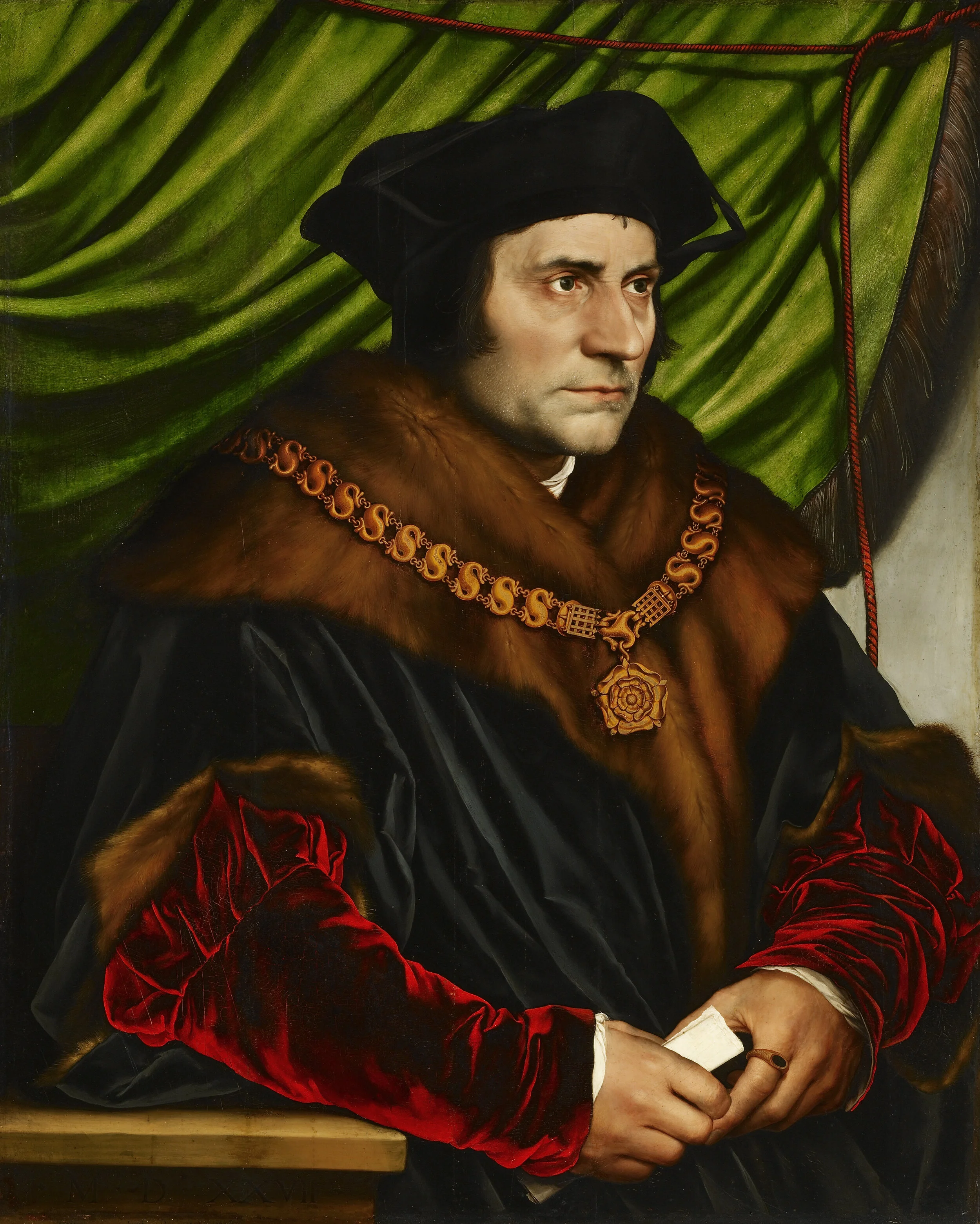Portrait of Thomas Cromwell 1532 (Hans Holbein the Younger)
Ambassador to India & former 42nd Mayor of Los Angeles Eric Garcetti is my latest portrait subject. Captured at the LA studio. In this blog post I wanted to explain my inspiration behind the portrait which lies in my love of artist Hans Holbein the Younger.
Subliminally, without really knowing, we’re all exposed to art - as well as impressions - that shape our unconscious and our ability to think, perceive and feel. As we move through life, art that was once a staple of our history books takes on a greater meaning, and perhaps this is none more true than for Renaissance Art and our assimilation with it as being what portraiture with power is about. The essence of the best portrait photography is mirrored in these Renaissance pieces. For me this is especially true of the Tudor Portrait Artist Hans Holbein ‘the Younger’.
In the works of Holbein lies the heart of my portraiture inspiration; especially in my Garcetti sitting. I loved history as a child, its permanence and transience all at once, reflected through the eyes of cultural and societal change, how it has been documented and therefore how it is recalled. I was fortunate to live near to Liverpool’s Walker Art Gallery, a treasure trove of pieces that began to unconsciously inspire and challenge me. The Gallery exhibits several of Holbein’s Works, which reflect not only the Renaissance period but exude a timeless quality as records of history.
Former Mayor of Los Angeles & Ambassador to India, Eric Garcetti Portrait Photoshoot Los Angeles (Photographer Rory Lewis 2023)
With Holbein we gaze upon solemn yet intensely powerful expression. His subjects are painted as though frozen in that moment in time, the essence of their being, authority and personality captured forever from that one moment. Holbein took his interpretation of his sitters seriously, knowing they were the testaments of time, and this has inspired me to adapt a similar style for my own Photographic Portraiture.
My work calls me to photograph many high-profile corporate individuals and political figures like Eric Garcetti. Over time I am continually drawn to Holbein’s influence in my own interpretations of the subject of portraiture. I believe Holbein’s style and timeless authority easily sits alongside the modern portrait – I aim to imbue my viewers with the same thought provocation that he succeeded in creating.
Former Mayor of Los Angeles & Ambassador to India, Eric Garcetti Portrait Photoshoot Los Angeles (Photographer Rory Lewis 2023)
Sir Thomas Moore (1527) Hans Holbein the Younger



